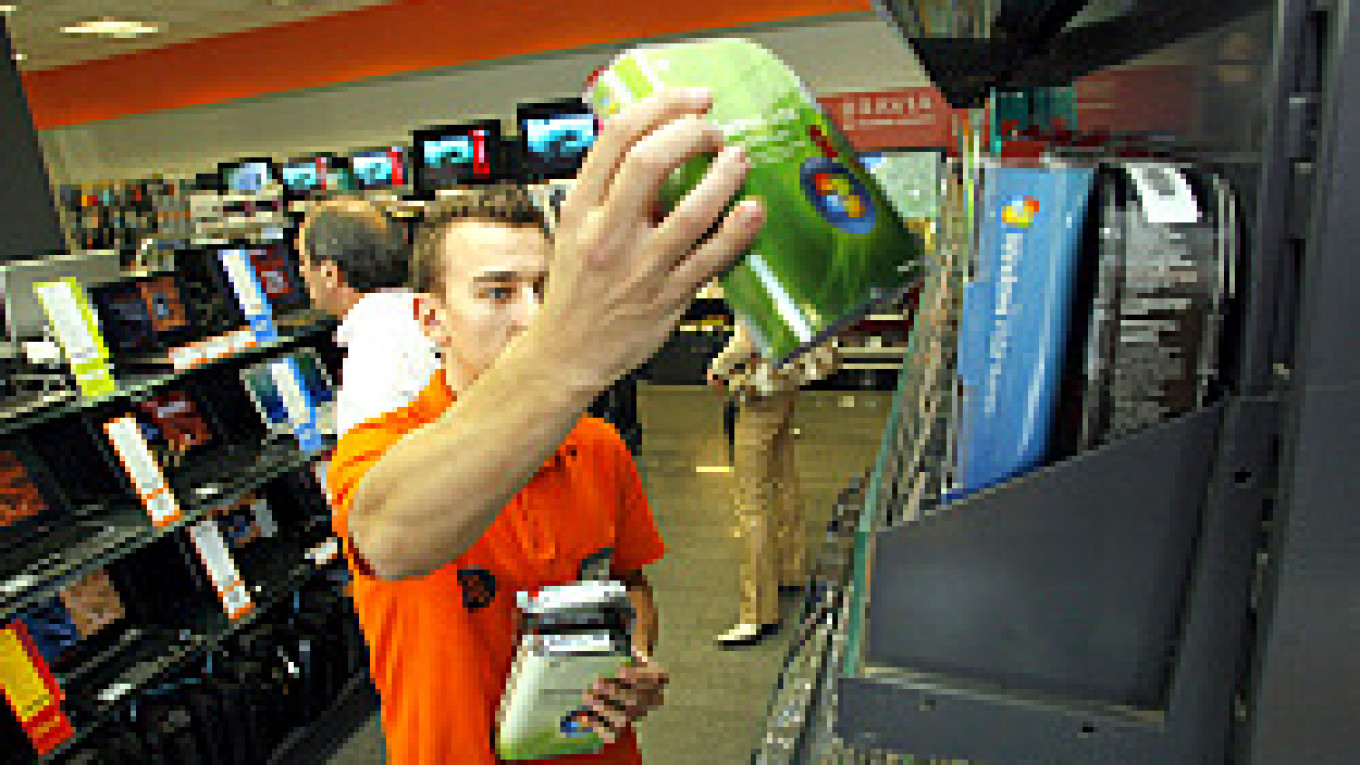Russia's top notebook sellers — Acer, Asus, Toshiba, Hewlett-Packard, Samsung and Dell — "colluded" to import products loaded almost exclusively with Windows software, which is added into the notebook's base price, the service said in a statement on its web site. Consumers are not provided viable alternatives or a chance to return the operating system, the statement said.
The investigation comes just a week after anti-monopoly officials accused Microsoft of ending delivery to Russia of its older but still popular Windows XP software in favor of the newer and more expensive Windows Vista.
"The notebook producer has to organize the return procedure for consumers, whether through their offices, their retailers or their warranty centers," said Vladimir Kudryavtsev, head of the service's IT department.
"It would be easier for retailers to use the return procedure than stocking notebooks without an operating system, which is not a popular option," he said.
While returning the software is part of the licensing agreement between Windows and the notebook makers, in practice the option is unavailable to end-consumers, the statement said. Ninety percent of notebooks imported to Russia have Windows preinstalled.
The service has been investigating the issue since February after receiving complaints, and it later met with manufacturers to try to resolve the issue, Kudryavtsev said.
In March, computer makers were given a chance to provide consumers with a way to return the operating system, but only two did and the evidence suggested that returns were still impossible in practice, he said.
Part of the problem, Kudryavtsev said, was that imported computers can spend a long time at the border, meaning custom-ordered notebooks without Windows can take eight weeks for delivery. "You wouldn't wait that long, would you?" he asked.
"We don't understand the position of the authorities," said Gleb Mishin, head of Acer's office in Russia. "In customs, a notebook is taxed as a unitary hardware-software complex, but in sales it turns out that the operating system is a separate product that can be returned," said Mishin.
A spokeswoman at Hewlett-Packard declined to comment on an ongoing case, and a PR official for Dell said the company had not seen an official statement. Spokespeople for Asus, Toshiba and Samsung were not immediately available for comment.
The service is not likely to succeed, however, if the case goes to court, said Alexei Borisov, an anti-monopoly lawyer at Yukov, Khrenov and Partners.
It will be difficult for the service to prove that the companies installed the Windows system in "collusion," he said. They could explain their actions by technological or economic constraints, Borisov said.
A spokeswoman at Microsoft, which is named as a third party in the case, said they had not received any official documents on the matter and therefore were not ready to comment.
A Message from The Moscow Times:
Dear readers,
We are facing unprecedented challenges. Russia's Prosecutor General's Office has designated The Moscow Times as an "undesirable" organization, criminalizing our work and putting our staff at risk of prosecution. This follows our earlier unjust labeling as a "foreign agent."
These actions are direct attempts to silence independent journalism in Russia. The authorities claim our work "discredits the decisions of the Russian leadership." We see things differently: we strive to provide accurate, unbiased reporting on Russia.
We, the journalists of The Moscow Times, refuse to be silenced. But to continue our work, we need your help.
Your support, no matter how small, makes a world of difference. If you can, please support us monthly starting from just $2. It's quick to set up, and every contribution makes a significant impact.
By supporting The Moscow Times, you're defending open, independent journalism in the face of repression. Thank you for standing with us.
Remind me later.


